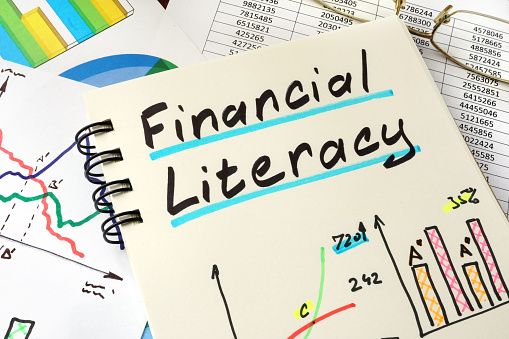Benefits Of Financial Literacy In Nigeria

What is Financial Literacy?
To be financially literate is to know how to manage your money properly. It involves having the right set of skills and knowledge that produces effective decisions surrounding your financial resources. Financial literacy means that an individual can understand and apply key financial concepts so that financial stability can be accomplished. Getting educated on personal finance is one and the same as being financially literate. The major areas of personal finances include income, spending, savings, investing, etc. and Financial literacy depicts having a sound understanding and practical application of these same terms. In other words, having a self-sufficient understanding of saving, spending, investing, and debt, that translates to an overall sense of financial well-being and self-trust is Financial literacy.
An increased financial literacy rate is important for boosting financial inclusion in Nigeria. The CBN in a publication on Development Finance stated that "Though there exist many educated and literate Nigerians, a high percentage of the population does not have the requisite skills to effectively manage their financial transactions and take advantage of the opportunities presented by the financial products and services to improve their well-being." The importance of financial literacy cannot be overemphasized. Developing financial literacy will involve learning responsible ways to pay your bills, borrow, invest, and save money to build wealth or meet financial goals.
Financial literacy is also linked to having practical knowledge of Interest, Inflation, and Risk diversification. Interest refers to the accrued income from any investment or the rate that determines an amount to be paid back regularly. Inflation describes the rate at which the price of goods and service increase during a period and its effect on the cost of living. Monitoring inflation helps you understand how much value your money has to purchase certain things in a period. Risk is inevitable in any venture hence, risk diversification is a useful strategy for managing investment risks. It is done by spreading your money across different assets and sectors in your investment portfolio. A vast understanding of all these terms and other related ones is important for financial literacy.
The public response of Nigerians to different Ponzi schemes over the years can be linked to poor financial literacy. The financial loss from these schemes indicates that many Nigerians indeed have money, but some don't know how to channel it towards the right sources to increase it. Ponzi schemes make individuals believe they can magically multiply their capital. With financial literacy, more people would understand how credible investments take time and more logical strategies. When you're financially literate, knowledge of financial risks and concepts and skills become a motivation for making informed decisions that bring better results.
Financial literacy is not beneficial to consumers alone, the financial institutions, service providers, and the larger economy will also benefit from a large financially literate population.
Benefits of Financial Literacy:
Financial Security - With financial literacy you can be financially secure; being assured of having sufficient money to cover your expenses and retirement without fear of exhausting it.
Building wealth - Building wealth is an intentional process, and does not happen just from earning a salary and saving part of it. Once you are financially literate, the smart ways to build wealth become clearer. All your income will be channeled to the right tools to bring investment returns.
Service providers will have fewer consumers who pose high credit and default risks. Financial literacy will arm consumers with planning repayment and avoiding debt.
Sustainable Cost of Living - Financial literacy helps you understand the best way to adjust your habits to what your reality is. Living within your means is harder to achieve without being attentive to how much you earn and spend. Becoming financially literate will constantly keep you conscious of how to work with the changes in the economy and your life.
Room for a secure retirement - Retirement plans are not common among Nigerians. It may be seen as a luxury that western society can afford. But this is not the case, it is important to make financial retirement plans. We shouldn't just work for money but make our money work for us when we can't work anymore.
A Larger market for financial Products - Financial illiterates shy away from financial products and services as they do not understand them. Literacy will increase the number of unbanked in the country and in turn the market demand for financial innovations. Owing to the fact that more consumers will know the usefulness of these innovations. Consumers will also be better equipped to make optimal choices in the use of financial products and this can promote Financial System Stability.
Steps to Take to be Financially Literate
Use free financial resources like books, podcasts, newsletters, etc. Read them and broaden your knowledge of finance.
Follow financial literacy content creators that post videos, articles, and relevant updates.
Start using financial management tools; Personal finance apps for budgeting, investments, etc.
Get expert advice on financial decisions if you can afford them.



